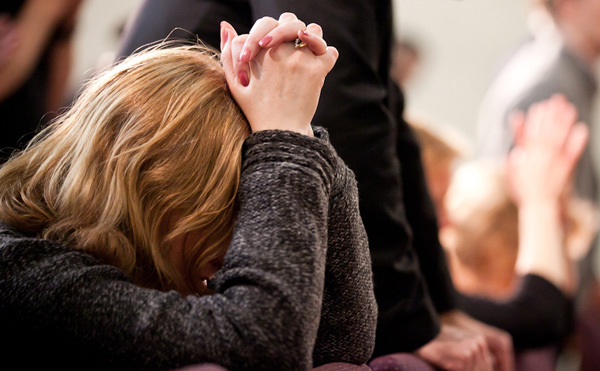"Devote yourselves to prayer, being watchful and thankful." —Colossians 4:2
 Frequent and fervent prayer is an essential part of our relationship with God. It is the natural product of genuine faith in God and His promise that He will hear and answer us. Though the practice of prayer is simple enough for a child to perform, prayer is also a complex discipline in which every Christian continues to grow and develop throughout life.
Just as Jesus' disciples, we all continue to cry out, "Lord, teach us to pray." It is a prayer that God loves to answer through His Word and a lifetime of abiding in Him.
Frequent and fervent prayer is an essential part of our relationship with God. It is the natural product of genuine faith in God and His promise that He will hear and answer us. Though the practice of prayer is simple enough for a child to perform, prayer is also a complex discipline in which every Christian continues to grow and develop throughout life.
Just as Jesus' disciples, we all continue to cry out, "Lord, teach us to pray." It is a prayer that God loves to answer through His Word and a lifetime of abiding in Him.As it says in Colossians 4:2 above, we should be devoted to prayer. Devotion to prayer means that we will pray frequently, multiple times a day, and fervently, honestly opening our hearts to God with faith that He will respond. There is great freedom in how we can pray, and our prayer lives will be marked by great variety and manners of prayer.
"Prayer is the easiest and hardest of all things; the simplest and the sublimest; the weakest and the most powerful; its results lie outside the range of human possibilities—they are limited only by the omnipotence of God." —E. M. Bounds
We can pray very freely and openly from our hearts, without any pretense or formality. We should never feel like our prayers need to be impressive or conform to some strict pattern. But we can, at times, benefit greatly from structure or formality in our prayers as well, praying through passages of Scripture, using written prayers from others, keeping regular prayer lists, or following patterns for prayer. Praying in structured ways can help us grow in the discipline of prayer and help us keep our focus in prayer for longer periods of time.
We should regularly pray both alone and with other Christians. We have a personal relationship with God that needs to be enjoyed and maintained alone with God. Praying alone allows us to focus fully on the needs of our own soul and keeps us from worrying about what others think of our prayers. At the same time, praying with other Christians inspires us to pray about new things and to pray more fervently as we listen to their prayers. It can also hold us accountable to persist in daily prayer.
Devotion to prayer means that we will schedule uninterrupted times each day to focus fully on prayer as our first priority. Outside of our scheduled times of prayer, we should also regularly and spontaneously be engaging God through prayer as needs arise during the day or as occasions arise to express our praise, confess our sin, or intercede for those we encounter.
We should pray authentically according to the state of our hearts before God. Our tone, our body posture, and the emotional content of our prayers should be an honest reflection of our hearts before God. Sometimes we will be broken and desperate before God, feeling the weight of our sin, the pain of suffering in this life, or the absence of warm fellowship with Him. Sometimes we will be joyful and delighted in God and how He is working in our lives. God welcomes us to come as we are and let our prayers and our posture before Him reflect the true state of the heart. As we read through prayers in the Scripture, we see examples of contrite prayers, desperate prayers, fearful prayers, joyful prayers, and confused and questioning prayers. God welcomes all of them as they are expressed with faith in Him and His promises.
As we grow in our faith in Christ, so should our commitment to prayer. God calls us to experience rich and fulfilling communion with Him as we pray freely and formally, alone and assembled, spontaneously and scheduled, desperately and delightedly. He will hear. He will answer. He will be gracious to those who trust Him. Will we take Him at His Word?
 Chris Matthews is Christian Union's ministry director at Yale University.
Chris Matthews is Christian Union's ministry director at Yale University. 




